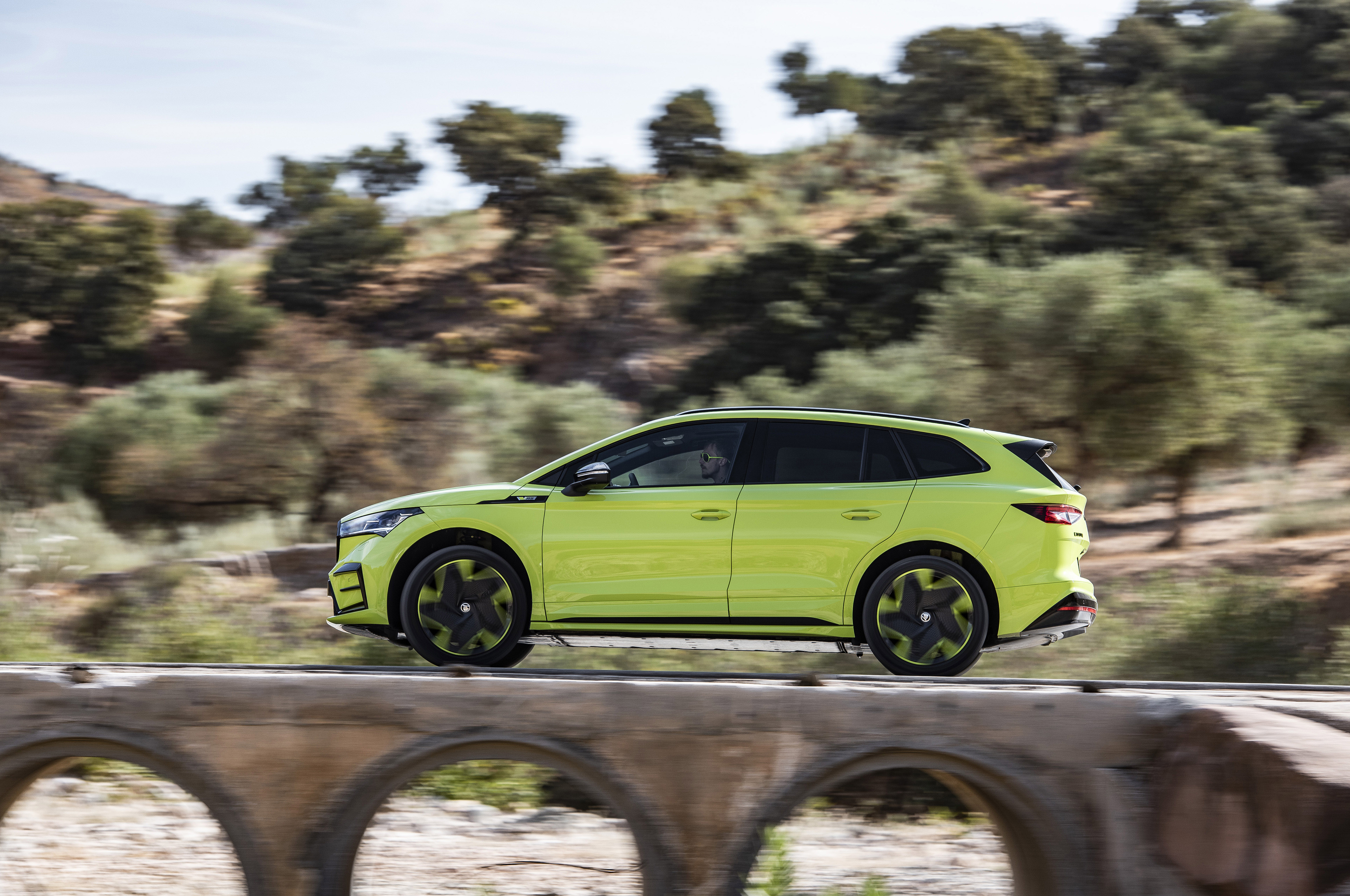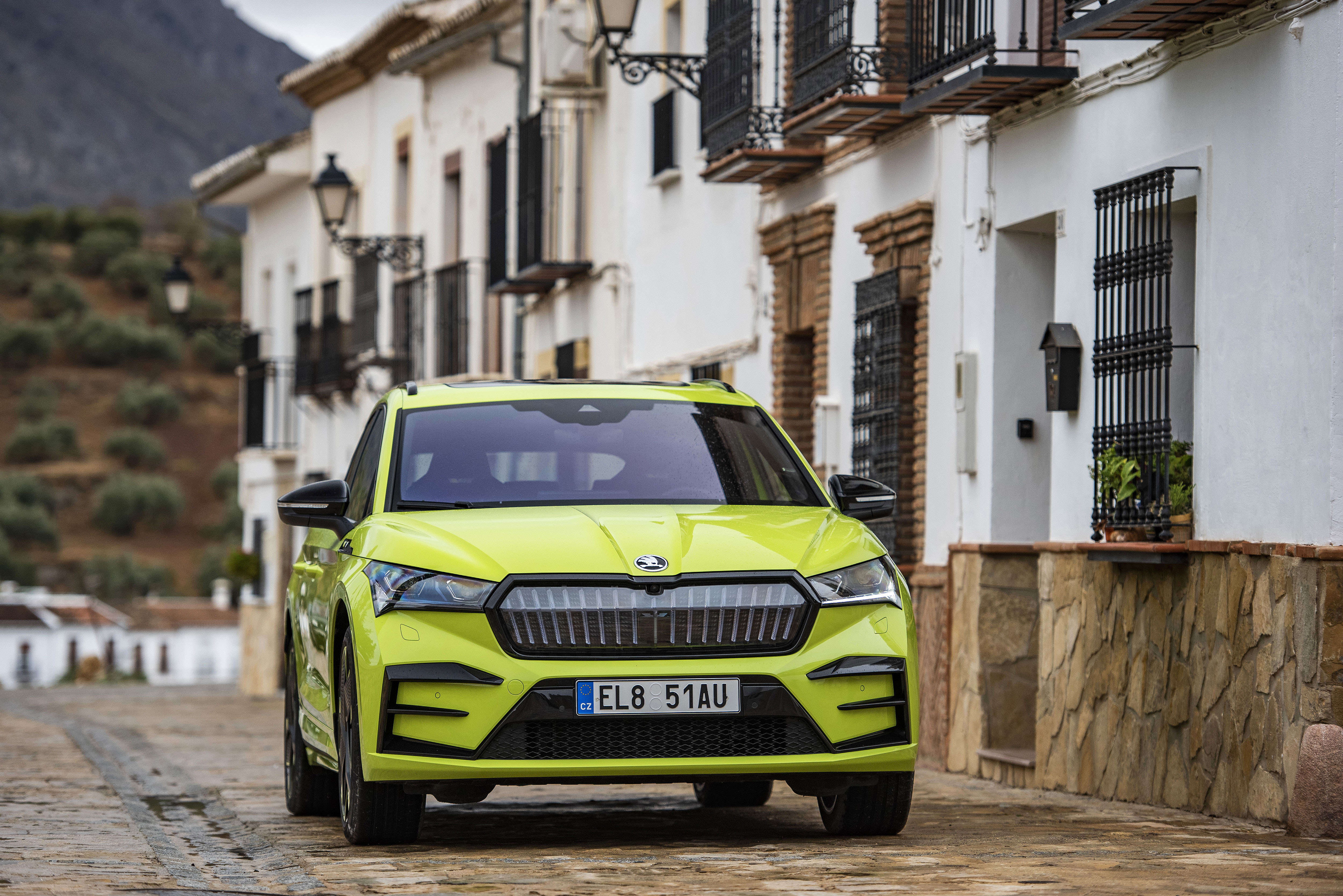› ŠKODA increasingly relies on reused and recyclable materials in production
› Unavoidable emissions are offset by certified carbon credits
› Second life cycle: Batteries from the ENYAQ iV will serve as stationary energy storage units after being used in vehicles
Mladá Boleslav, 5 December 2022 – As one of the many initiatives under the NEXT LEVEL – ŠKODA STRATEGY 2030, ŠKODA AUTO will be reducing its CO₂ fleet emissions by more than 50% by 2030 compared to 2020. The upcoming battery electric vehicles will also play a crucial role in this. Models in the ENYAQ iV family are already being delivered to customers with a carbon-neutral balance sheet. ŠKODA is also increasingly using recycled and recyclable materials in production and has been drawing on the expertise of a sustainability advisory board since 2021 to achieve its ambitious sustainability goals.
Owners of a vehicle from the ENYAQ iV family can travel 100% “green” with their ŠKODA throughout its life cycle if they charge the SUV exclusively with renewable electricity. This is because ŠKODA AUTO delivers the all-electric, locally emission-free SUV to customers with a CO₂-neutral balance sheet. The carmaker compensates for currently unavoidable CO₂ emissions during production by purchasing certified carbon credits.
Extensive use of recycled and recyclable materials
ŠKODA is focusing more and more on recycled materials in its current models to effectively reduce the CO₂ footprint of its vehicles along the entire value chain. The proportion of recycled materials in ŠKODA vehicles is constantly increasing, with recycled plastics, metals and glass all making an important contribution. Recycled plastics that come from former battery housings and bumpers, for example, are used to make new underbody panelling, engine covers and boot linings. ŠKODA AUTO is also working on developing sustainable materials with natural constituents that will enter series production in the future. These include sugar beet fibres, a by-product from a sugar factory in Dobrovice, not far from ŠKODA’s headquarters in Mladá Boleslav. These types of fibres or shells, including those from coconut and other nuts, rice, cork and hops, as well as coffee grounds, could be used as potential natural fillers in plastic composites.
Second life cycle for high-voltage batteries
After being used in a vehicle, the batteries from ENYAQ iV family models go through a second life cycle. They supply ŠKODA dealers with sustainably produced electricity in stationary energy storage units, which can be used for charging stations, lighting and air conditioning in showrooms and workshops, among other applications. In addition, the systems can store surplus green electricity that is generated, for example, by a photovoltaic system. This electricity is then available at any time, regardless of the weather or the current load of the local power grid. The service life of the batteries is extended to up to 15 years through this second cycle. Once the second life cycle in the storage stations has ended, ŠKODA AUTO feeds the batteries into a controlled recycling process. The recovered raw materials are then used to produce new batteries.
Further measures to reduce CO₂ emissions
ŠKODA AUTO’s wide range of sustainability measures build on the Volkswagen Group’s ‘goTOzero’ environmental mission statement. The policy encompasses the topics of climate change, resources, air quality and environmental compliance. In addition to sharpening the focus on sustainable materials and renewable energy, ŠKODA AUTO is also continuously striving to reduce the use of resources in producing each vehicle. Besides raw materials, this includes energy consumption and the emissions associated with transport and logistics. ŠKODA AUTO’s component plant in Vrchlabí has been CO₂-neutral since 2020. The two other sites in the Czech Republic, Mladá Boleslav and Kvasiny, will achieve this goal by 2030, and the locations in India as early as 2025. The third-largest photovoltaic roof system in the Czech Republic will go into operation at ŠKODA’s main plant in Mladá Boleslav in spring 2023. A smaller system on the roofs of the service centre in Kosmonosy and a CHP plant, where around a third of the fuel is biomass, already produce electricity from renewable sources.
Independent sustainability advisory board with internationally renowned experts
ŠKODA AUTO has drawn on the expertise of an external sustainability advisory board since November 2021. The independent panel of five internationally renowned experts advises the Board of Management on the implementation of planned sustainability measures and provides new perspectives, impetus and approaches. This means the car manufacturer is one of the first companies in the Czech Republic to rely on the expertise of an advisory board in this area.

Vítězslav Kodym
Head of Product Communications
T +420 326 811 784
vitezslav.kodym@skoda-auto.cz
Štěpán Řehák
Product Communications
T +420 734 298 614
stepan.rehak@skoda-auto.cz





























